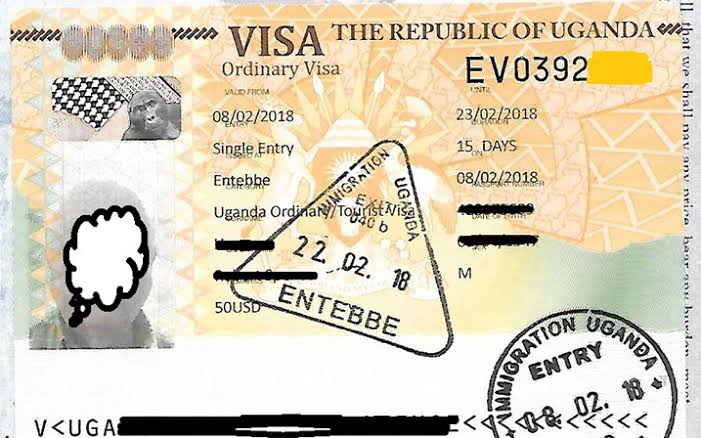Does Rwanda Have Beach Resorts?
May 5, 2025What’s the Best Rwanda Safari Itinerary?
May 5, 2025Why Is Rwanda a Top Eco-Destination?
I still remember my first sunrise in Rwanda. Standing on the edge of Lake Kivu, watching golden light dance across the water as fishermen paddled their traditional canoes into the mist I felt a rare kind of stillness. There’s something about Rwanda that touches you deep down, something that stays long after your bags are unpacked and your passport tucked away. This small East African country, often called the “Land of a Thousand Hills,†isn’t just breathtaking it’s a model of sustainability, conservation, and eco-tourism done right.
Rwanda’s journey from tragedy to a global beacon of environmental stewardship is nothing short of extraordinary. And that’s exactly why, in an era where travel is evolving into something more conscious and responsible, Rwanda stands tall as a top eco-destination.
Nature Has a Home Here
One of the first things that struck me about Rwanda was just how green it is. Not just in terms of landscape, but in its very soul. Kigali, the capital, is one of the cleanest cities I’ve ever visited plastic bags are banned, street cleaning is a regular community activity, and the air feels lighter, fresher.
But the real magic begins when you leave the city and venture into Rwanda’s rural heartlands. The country is blessed with three national parks: Volcanoes National Park, Nyungwe Forest National Park, and Akagera National Park. Each is a world of its own, offering a deeply immersive and eco-friendly experience.
Gorilla Trekking: Conservation in Action
Let’s be honest most people come to Rwanda with one thing in mind: gorilla trekking. And I was no different. But what I didn’t expect was how emotional and humbling the experience would be.
Trekking into the misty jungles of Volcanoes National Park, led by skilled local guides and trackers, we came face-to-face with a family of endangered mountain gorillas. I watched a silverback gently cradle a young one, completely at ease with our presence, thanks to years of conservation work and responsible tourism practices.
This isn’t just a wildlife encounter it’s conservation in action. Rwanda limits the number of daily trekking permits to reduce human impact, and the hefty permit fee ($1,500 as of now) goes directly into supporting local communities and protecting the gorillas. It felt good knowing my visit was part of a bigger, meaningful effort.
Community at the Core
Something that deeply moved me throughout my trip was how involved local communities are in tourism. Rwanda has made it clear: conservation can’t succeed unless local people benefit too.
Whether it was staying at a community-run lodge near Nyungwe Forest or visiting the Iby’Iwacu Cultural Village near Volcanoes National Park, I was constantly struck by how empowered and invested people were in protecting their environment.
One woman I met, Claudine, shared how tourism has changed her village. “We used to see the forest as a source of firewood,†she said. “Now, we see it as a source of life. Tourism pays for our children’s school fees. We protect the forest because it protects us too.â€
That level of ownership is rare and it’s what makes Rwanda’s eco-tourism model so sustainable.
Nyungwe Forest: A Living Time Capsule
If you’re a nature lover like me, Nyungwe Forest is pure paradise. This ancient rainforest, one of the oldest in Africa, is home to over 300 bird species and 13 types of primates, including chimpanzees and colobus monkeys.
Walking along the canopy walkway yes, that’s a suspension bridge 60 meters above the forest floor I felt like I’d stepped into a National Geographic special. The forest hums with life, from butterflies to echoing bird calls, and every step reminded me just how precious untouched nature really is.
And here too, the eco-approach is evident. Rangers ensure no waste is left behind, trails are clearly marked, and visitor numbers are managed. I appreciated how seamlessly my experience blended with conservation goals.
Akagera: A Conservation Comeback
Akagera National Park, in the east of the country, was one of the biggest surprises of my trip. Once nearly decimated by war and poaching, it’s now one of Africa’s most successful park restoration stories.
Seeing elephants and lions roam again in a park that, 20 years ago, had almost nothing left, was incredibly powerful. The reintroduction of species, anti-poaching efforts, and partnerships with conservation groups like African Parks have brought Akagera back to life.
And the safaris? Intimate, quiet, and respectful. No traffic jams of jeeps here—just open savannah, sustainable lodges, and a sense of solitude that’s getting harder to find in Africa’s more commercialized parks.
Sustainability Is the Standard
Rwanda doesn’t treat sustainability as a trend. It’s part of the national identity. From eco-lodges that run on solar power to hotels eliminating single-use plastics, the country is walking the talk.
One of my most memorable stays was at Bisate Lodge, which blends luxury with eco-innovation. Built into the hillside near Volcanoes National Park, the lodge uses local materials, supports reforestation, and invests in education programs. I slept in a villa shaped like a traditional Rwandan hut, with sweeping views of the mountains proof that comfort and conscience can coexist.
Even transportation in Rwanda is leaning green. The country is investing in electric motorcycles, promoting car-free days in cities, and encouraging walking and cycling. It’s clear Rwanda isn’t just hosting eco-tourists it’s living the values every day.
Travel That Transforms
By the end of my journey, I realized Rwanda had given me more than just beautiful memories. It gave me hope. Hope that responsible tourism isn’t just possible, but powerful. That when people and governments align with nature in mind, incredible things can happen.
Rwanda’s story from the trauma of the 1994 genocide to becoming a model for sustainability is a lesson in resilience. This is a place that chose to heal through unity, to grow through conservation, and to invite the world not just to visit, but to learn.
As I boarded my flight home, I thought about the young ranger who’d guided us through Nyungwe. “We don’t take our nature for granted,†he had told me. “We know what it means to lose everything. That’s why we protect what we have.â€
Those words stayed with me. Because in Rwanda, every eco-experience is tied to something deeper: gratitude, responsibility, and the belief that a better world is worth building.
Conclusion: Why Rwanda?
So, why is Rwanda a top eco-destination? It’s not just the gorillas, the rainforests, or the conservation wins though all of that is reason enough. It’s the way everything fits together. The policies, the people, the parks they form a living system of respect, balance, and vision.
If you’re looking for travel that means more, that leaves a positive footprint, and that connects you to something greater than yourself, Rwanda is waiting. Not just to show you its beauty but to share a model for how we can all do better, for the planet and for each other.



